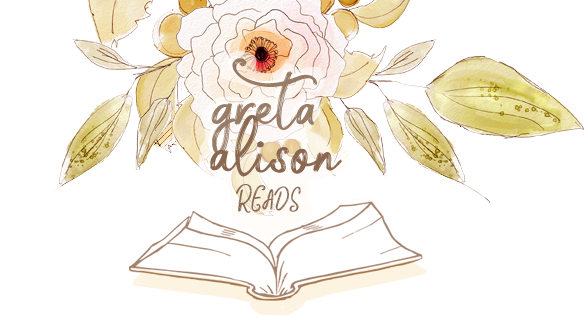WISDOM WEDNESDAY | “Messenger” by Mary Oliver
 In honor of tomorrow’s holiday, I thought a post about gratitude was in order. So today, we’ll be visiting with Mary Oliver. If you’ve never read anything by her, prepare yourself. This woman is magnificent, and I’m convinced her poetry can move even the most stoic and unpoetic of individuals. If you’ve not figured it out from the last two sentences, Mary Oliver is my favorite poet. And she often talks about gratitude. “Messenger”, which is one of the poems in the collection titled Thirst, certainly explores the subject.
In honor of tomorrow’s holiday, I thought a post about gratitude was in order. So today, we’ll be visiting with Mary Oliver. If you’ve never read anything by her, prepare yourself. This woman is magnificent, and I’m convinced her poetry can move even the most stoic and unpoetic of individuals. If you’ve not figured it out from the last two sentences, Mary Oliver is my favorite poet. And she often talks about gratitude. “Messenger”, which is one of the poems in the collection titled Thirst, certainly explores the subject.
Messenger
“My work is loving the world.
Here the sunflowers, there the hummingbird—
equal seekers of sweetness.
Here the quickening yeast; there the blue plums.
Here the clam deep in the speckled sand.
Are my boots old? Is my coat torn?
Am I no longer young, and still not half-perfect? Let me
keep my mind on what matters,
which is my work,
which is mostly standing still and learning to be
astonished.
The phoebe, the delphinium.
The sheep in the pasture, and the pasture.
Which is mostly rejoicing, since all the ingredients are here,
which is gratitude, to be given a mind and a heart
and these body-clothes,
a mouth with which to give shouts of joy
to the moth and the wren, to the sleepy dug-up clam,
telling them all, over and over, how it is
that we live forever.”
How breathtaking? The way Oliver has set the poem up seems to convey a thought process we all sometimes go through. We ask ourselves: Why am I not happy? Why should I not be overjoyed in this very moment? I am fed. I am clothed. I am loved. What more is there? Well, there’s so much more. But what more do I really need? Would all of the “more” truly make me richer than this moment, watching the birds, does?
I think the title of the poem, and the last stanza in particular, speak to the message about gratitude that we all hear and know, but don’t necessarily apply: expression of gratitude. Whether we express it externally (through speech, art, action) or internally (our thoughts and agreements with ourselves), the frequent expression of gratitude necessitates that we cease to take things for granted. If I ask you whether you are grateful for your health, your family, or even something less personal, like the ocean, your answer will probably be yes each time. But how often do you truly think about how thankful you are for such specific things? How often does a bad day inspire you to reflect on that which is good in your life, rather than the things that made that day unhappy? How often do you stand in your backyard and feel grateful for whatever it is you’re looking at? Maybe you do these things often. I know there are people who overflow with genuine gratitude. If you are one of those people, you’re a light in this world, and I hope I know you! I am not one of those people. I try, and I like to use poetry like this and holidays like Thanksgiving as reminders to renew my appreciation and deeply held gratitude for all of the good things. But some days make this easier than others, and that’s another thing I love about Oliver’s poem.
She says this is her work. That first line gives me chills. Imagine a world where everyone believed that loving it, and every living thing within it, was their work. But I also just adore that Oliver used that word. Work. Because it is work. And work isn’t bad. The work is what’s beautiful about it. What matters, as Oliver says. This is a concept I’ve been trying to apply. Sometimes, during the day, I’ll walk outside and long to spend a good few minutes in the fresh air. But I should be working; the frenzy must resume. Must it? Isn’t it more important to cherish the natural world than to be “successful” and “busy” according to the definitions we’ve assigned to those words? It feels more important. Being one with the natural world feels intuitive. But making the conscious choice to follow that intuitive desire to commune with nature, and let the emails pile up for a few minutes, is the work. A different kind of work from the emails, but you get my point. I think this is what Oliver tells us.
She also says the work is about standing still and learning to be astonished. This is so intriguing, because aren’t we taught that astonishment is a spontaneous emotion? That its true meaning lies in its unexpected nature. That would make you think you couldn’t, or shouldn’t, actively try to be astonished. But, what happens when you look at things differently? Something you didn’t even noticed before now does seem astonishing, and thus, you’ve learned to be astonished. And standing still, in our busy world, really can be such a challenge. But I think it’s worthy work. And I think that’s what Oliver wants us to know.
Lastly, this image of the poem’s narrator telling the world and its inhabitants, “how it is / that we live forever”, is so beautiful. For me, it meant that love—for the world, its people, its creator—is the answer to everything. How long has man searched for the secret to everlasting life? Well, nature is cyclic. It does live forever. And we are a part of it.




